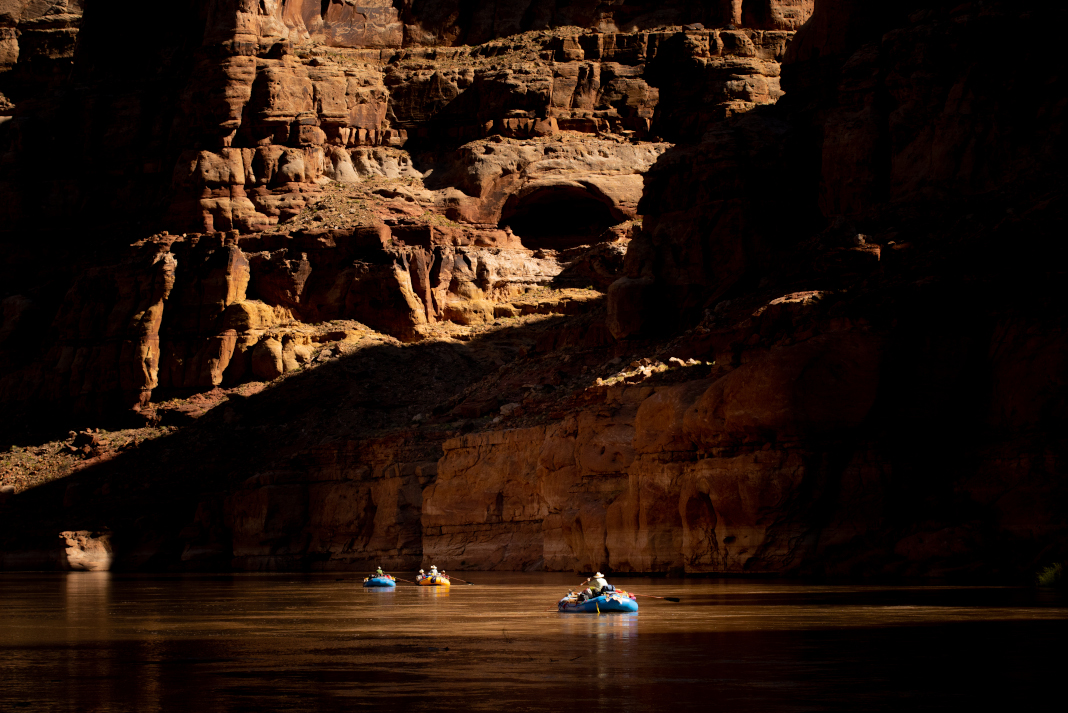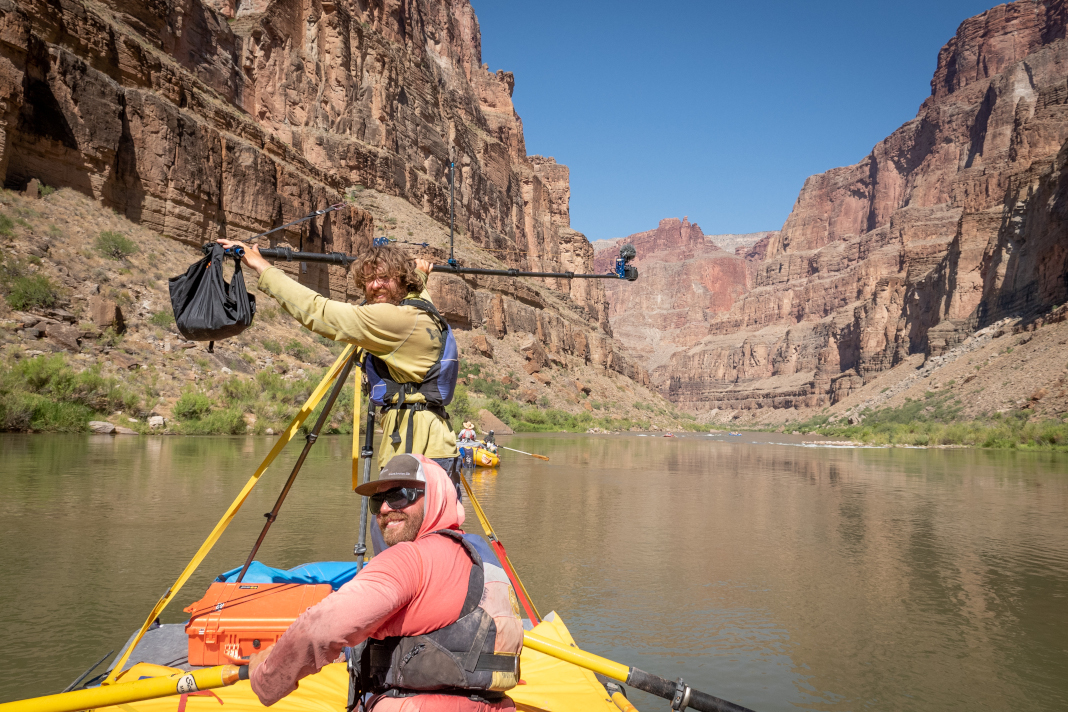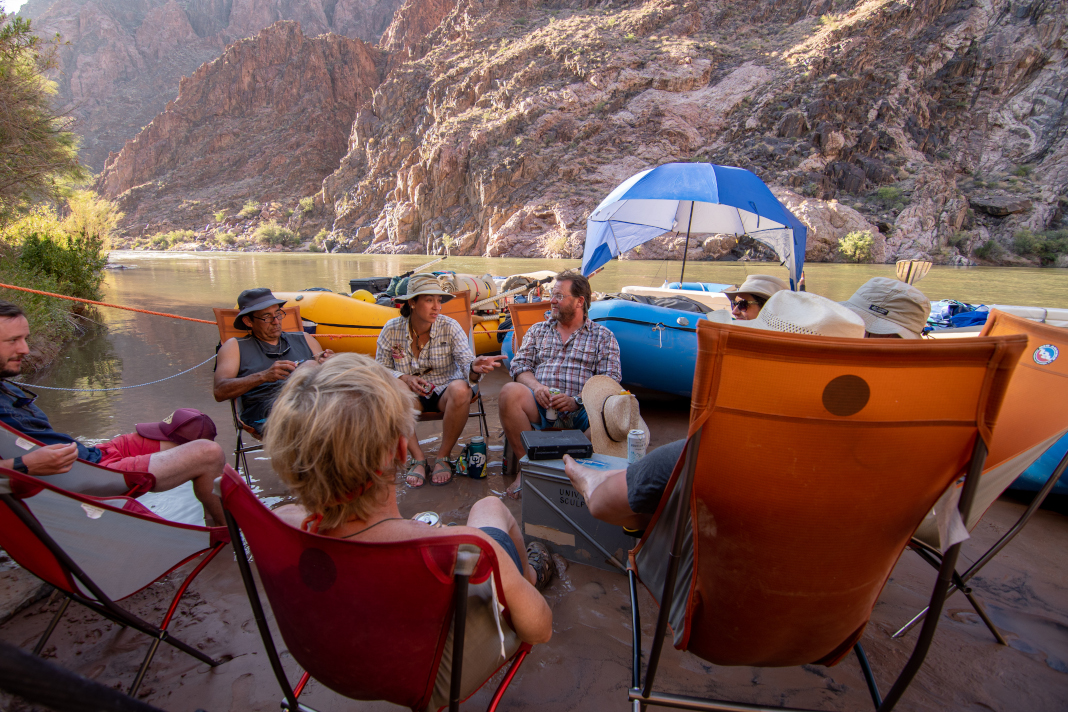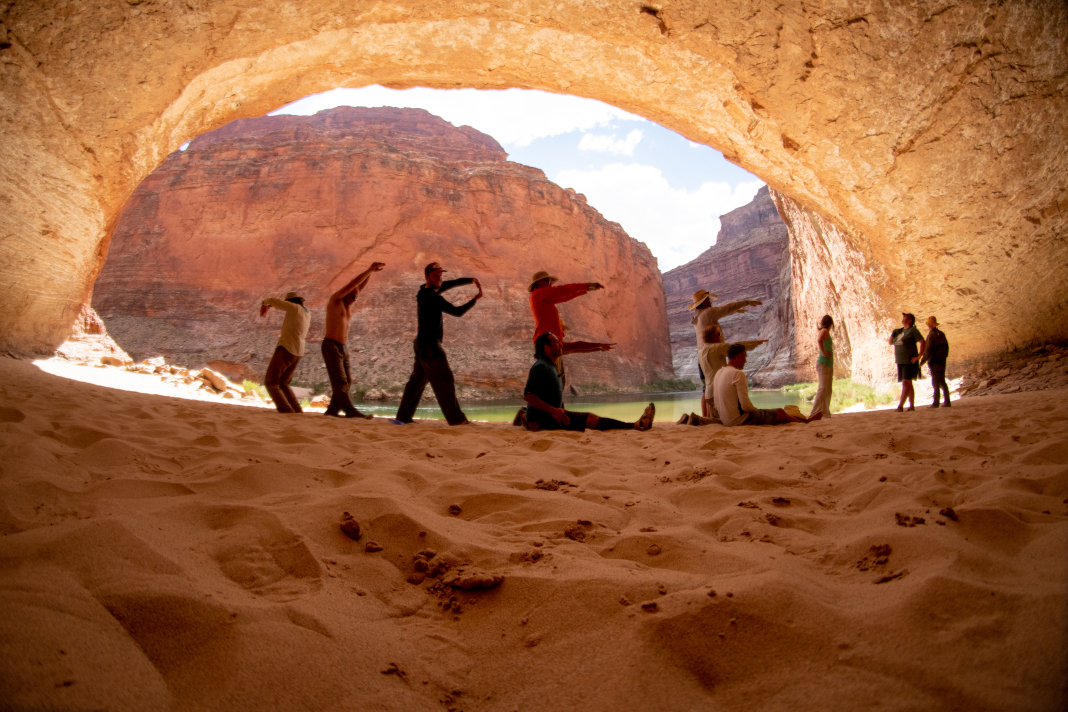On May 24, 1869, John Wesley Powell and his men stood on the banks of Expedition Island in Green River, Wyoming. They watched as their sleek wooden boats bobbed with the ebb and flow of the Green River as they came to terms with what lay ahead. They were about to embark on a harrowing journey into the last unmapped region of the United States —the deep canyons and airy basins of the Green and Colorado rivers.
For millennia, the hydrologically connected waterways provided the natural plumbing network that drained the Colorado River basin, a conveyor belt of nutrients and sediment that provided the foundation for diverse ecosystems, vibrant riparian corridors, and interconnected lands with staggering biodiversity. For 100 days, and 1,000 miles, the expedition fought for survival in order to survey the drainage.

Has the Colorado River run out of time?
One hundred and fifty years after Powell’s expedition, our society is barreling toward a new unknown. Powell’s expedition catalyzed a young America to push west. Despite Powell’s warning about the resource limitations, the Colorado River basin was fragmented, dammed, diverted and manipulated. Over 100 dams severed the basin. Water once confined to watershed boundaries was diverted through a spiderweb of tunnels, canals and aqueducts.
Today, 40 million people rely on its water, while the dams within the basin generate 7,178 megawatts of electricity to meet the insatiable power needs of a growing Western U.S. We find ourselves with a river system that has lost all sense of equilibrium. Yet, our dependence on it has never been higher.
Despite the Colorado River’s immense importance, its future is in peril. The basin is over-allocated, and the most recent studies suggest human-induced rapid environmental change (HIRC) could reduce the flow of the river by as much as 30 percent by 2050. On top of this, the area is currently experiencing the worst drought in recorded history. Supply and demand imbalances, climate change, inequity, aging infrastructure, and aridification all threaten a sustainable future in the American West.

Retracing the past to see the future
Wanting to witness the state of the Colorado basin firsthand, I joined a once-in-a-lifetime opportunity to re-create Powell’s expedition in modern times, the Powell 150. The 150-year anniversary of Powell’s expedition provided the perfect framework to reexamine Powell’s legacy and our modern society’s complex relationship with the Colorado basin.
We launched our expedition from the same banks Powell did in Green River, Wyoming. Over 71 days, our crew of scientists, artists, filmmakers and tribal members traversed 1,000 miles down the basin in Powell’s footsteps. Much has changed since his inaugural passage. We towed our boats across reservoirs and shuttled around dams. Still, we were enveloped by the true beauty and transformative power of dynamic riverscapes.
Along the way, we encountered the manifestations of our societal needs, spoke with water managers and tribal members, and did our best to provide an objective assessment based on our conversations and firsthand experiences.

The result of our work is the feature film, A River Out of Time, directed by myself and Cody Perry. The film is a journey to provide the viewer with unique insight into the entirety of the basin. It opens diverse commentary from historically marginalized communities, lays out hard truths and showcases the natural wonders still to be found in the river basin Powell launched into over a century ago. Our hope with A River Out of Time is to share a modern assessment of not just where the Colorado River stands, but the course it is heading.






Look forward to seeing your film. Very glad I got a 100 mile dory trip in 1994.